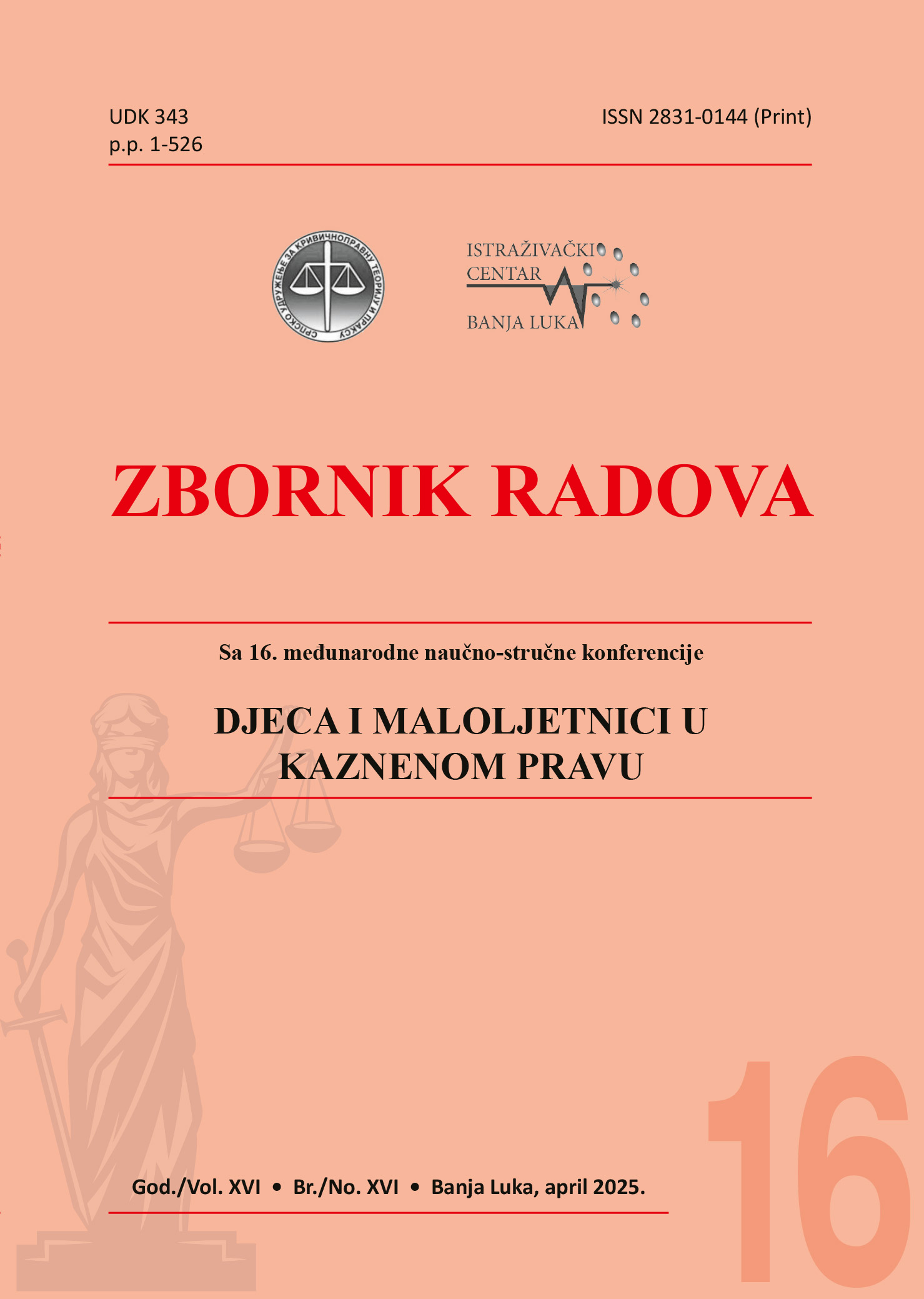PSYCHOSOCIAL INTERVENTION PROGRAMS FOR JUVENILE OFFENDERS IN THE REPUBLIC OF SRPSKA
DOI:
https://doi.org/10.7251/CEST1625446ZKeywords:
youth, law, educational measures and recommendations, psychosocial interventions, substance abuseAbstract
Introduction: The Law on the Protection and Treatment of Children and Juveniles in Criminal Proceedings implies that certain educational recommendations and measures are imposed on these persons. The court makes a decision on the recommendations and measures after obtaining data from social anamnesis by experts. The anamnesis contains all the necessary data to select the most effective measures for preventing recidivism in committing criminal and misdemeanor offenses.
The aim of this paper is to examine possibilities of providing psychosocial interventions to juvenile perpetrators of criminal offenses, with special reference to counseling centers for young people who abuse psychoactive substances.
Method of work: A literature review provided insight into the existence of certain types of counseling centers and programs, in our environment and beyond. Insight was also gained into the effectiveness of these programs, as well as the causes that lead to the need for well-organized programs.
Results: Analyzing the situation in the Republic of Srpska, it is evident that Banja Luka, as the center of the Republic of Srpska, has the capacity to care for young people in conflict with the law, through cooperation between guardianship authorities and associations that can provide psychosocial interventions. There are also associations that work with young people whose delinquent behavior is caused by the abuse of psychoactive substances. When reviewing the sources of information, we did not find out whether smaller local communities have such programs. When investigating the success of psychosocial interventions, we noticed that the most effective programs are those that focus on early prevention, risk and protective factors, those that have a certain duration and structured program, and that include work with parents. Among other things, the projects "Benjamin" and "Stop" implemented in Croatia, and the program "Treatnet family" implemented by UNODC in several countries around the world are presented.
Conclusion: This paper analyzes the possibilities for implementing psychosocial interventions for young people in conflict with the law in the Republic of Srpska. Certain possibilities and capacities exist, but they are not present to a sufficient extent, especially when it comes to specific programs that would be applied to juvenile offenders who abuse substances.
